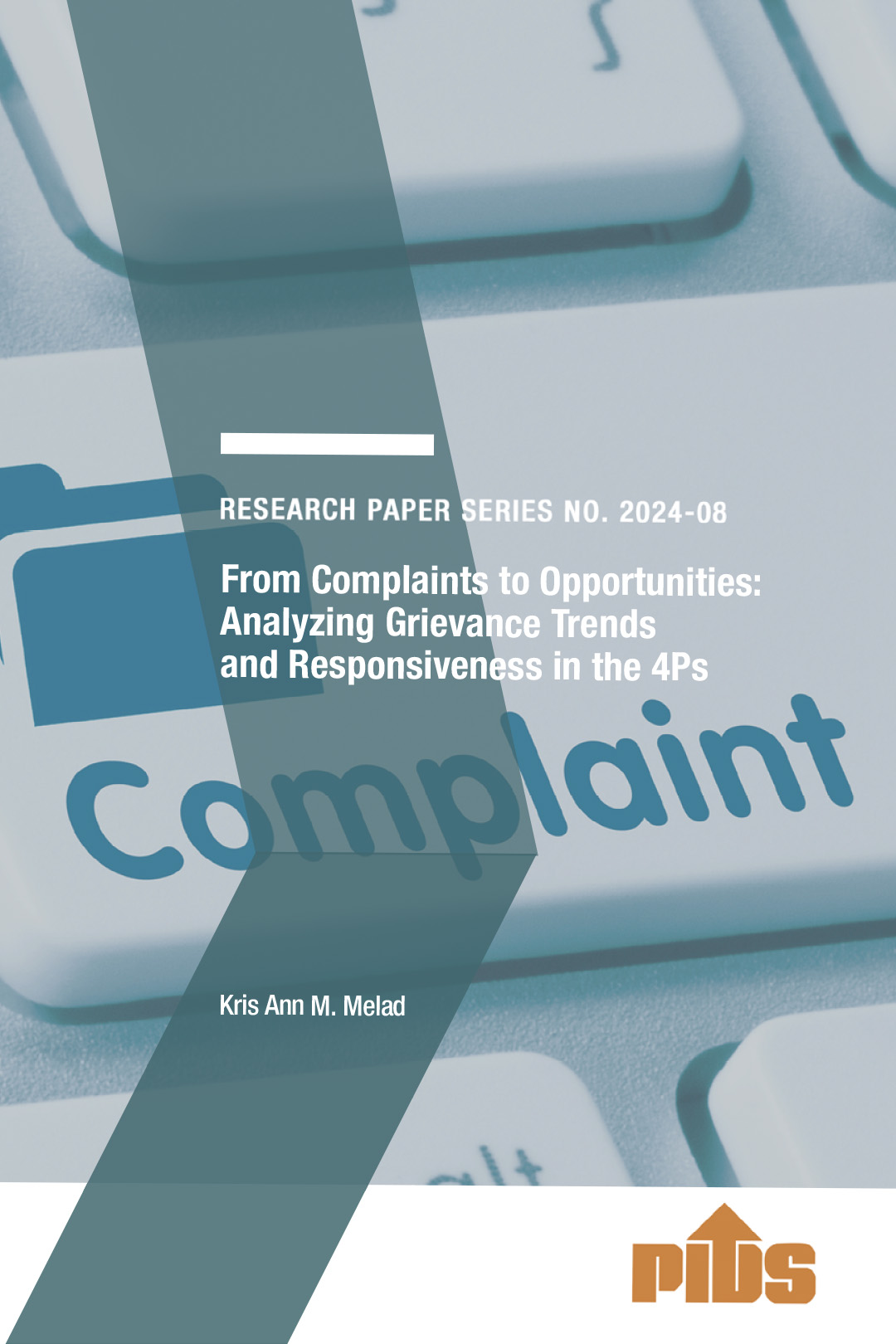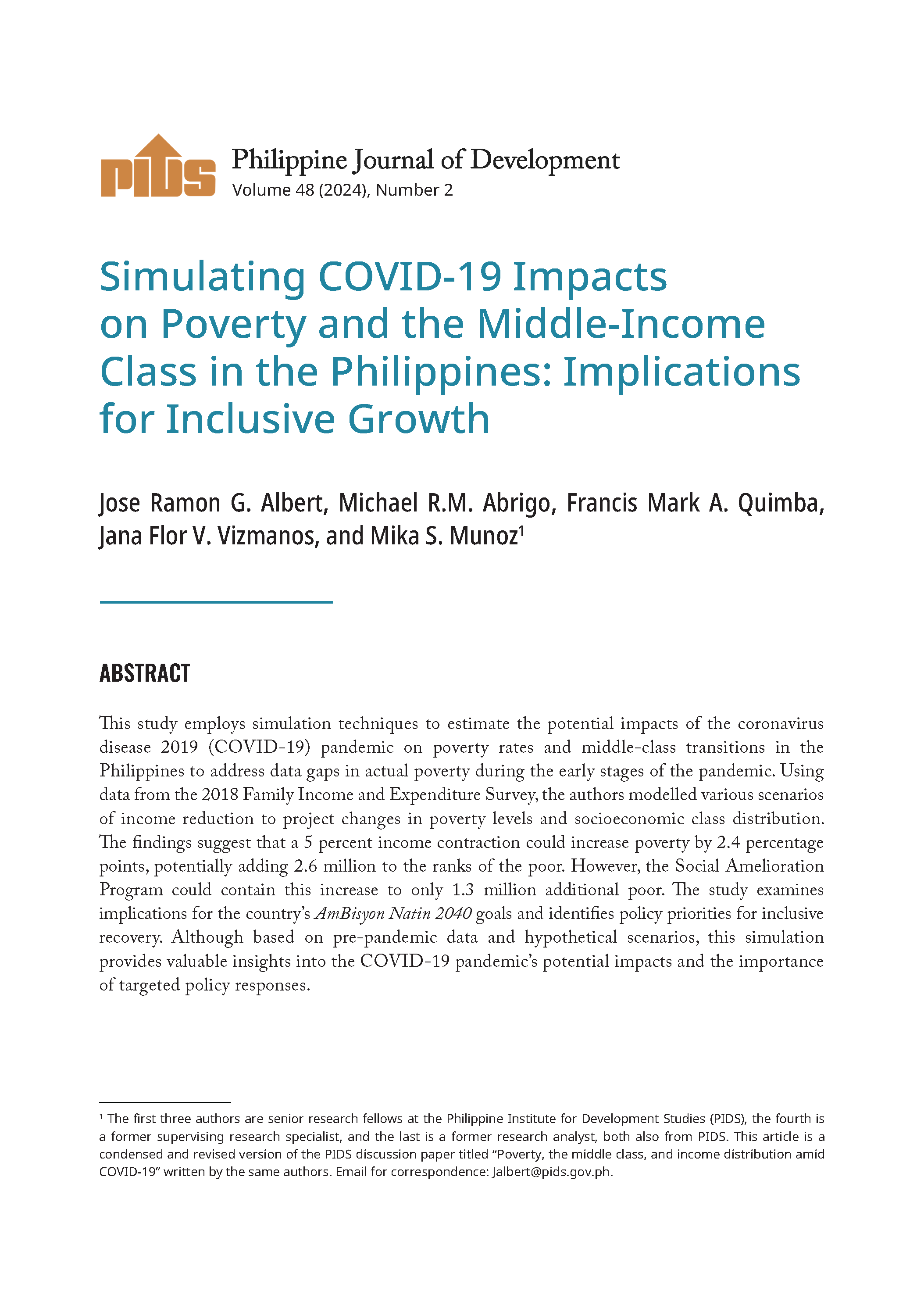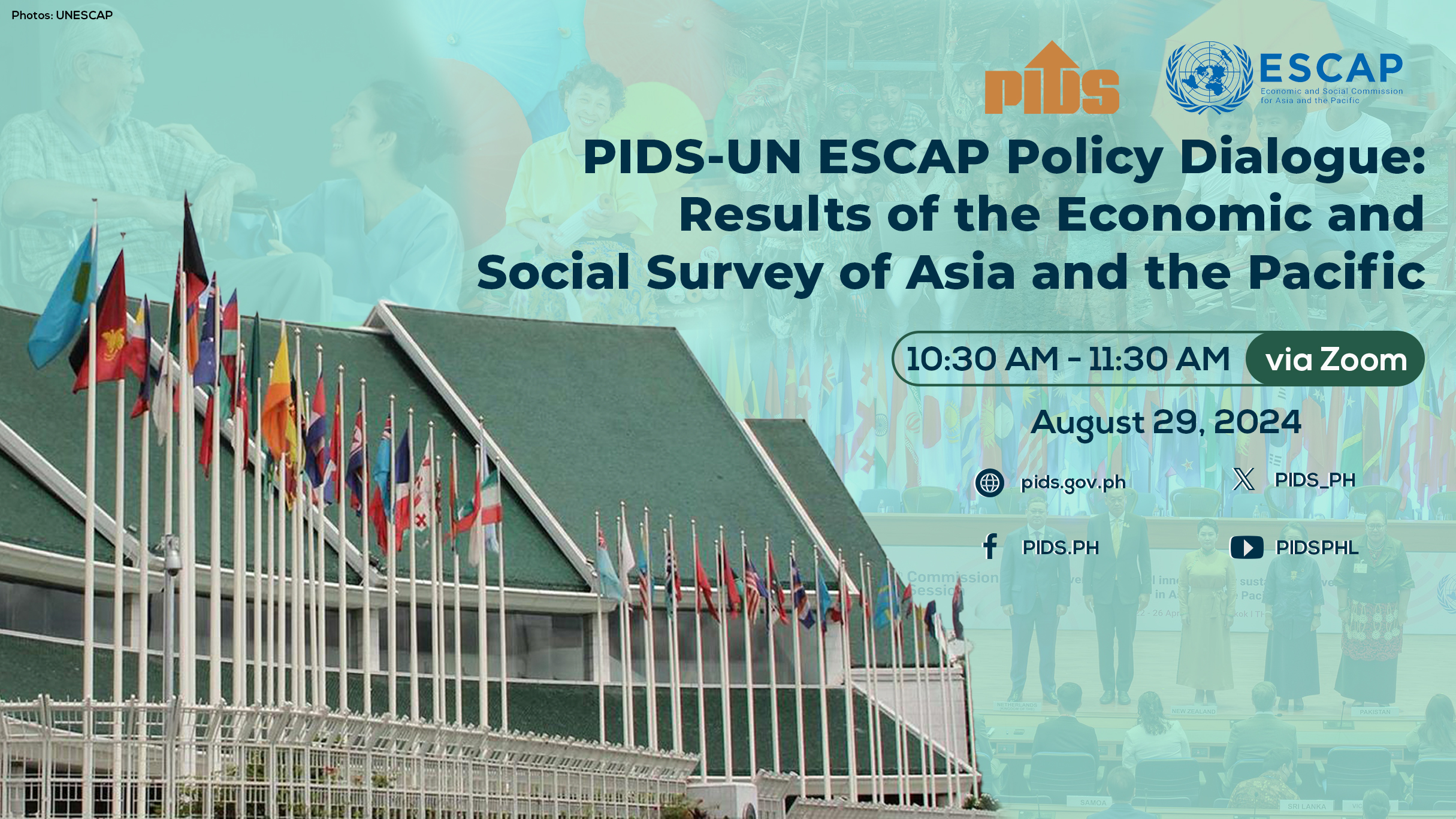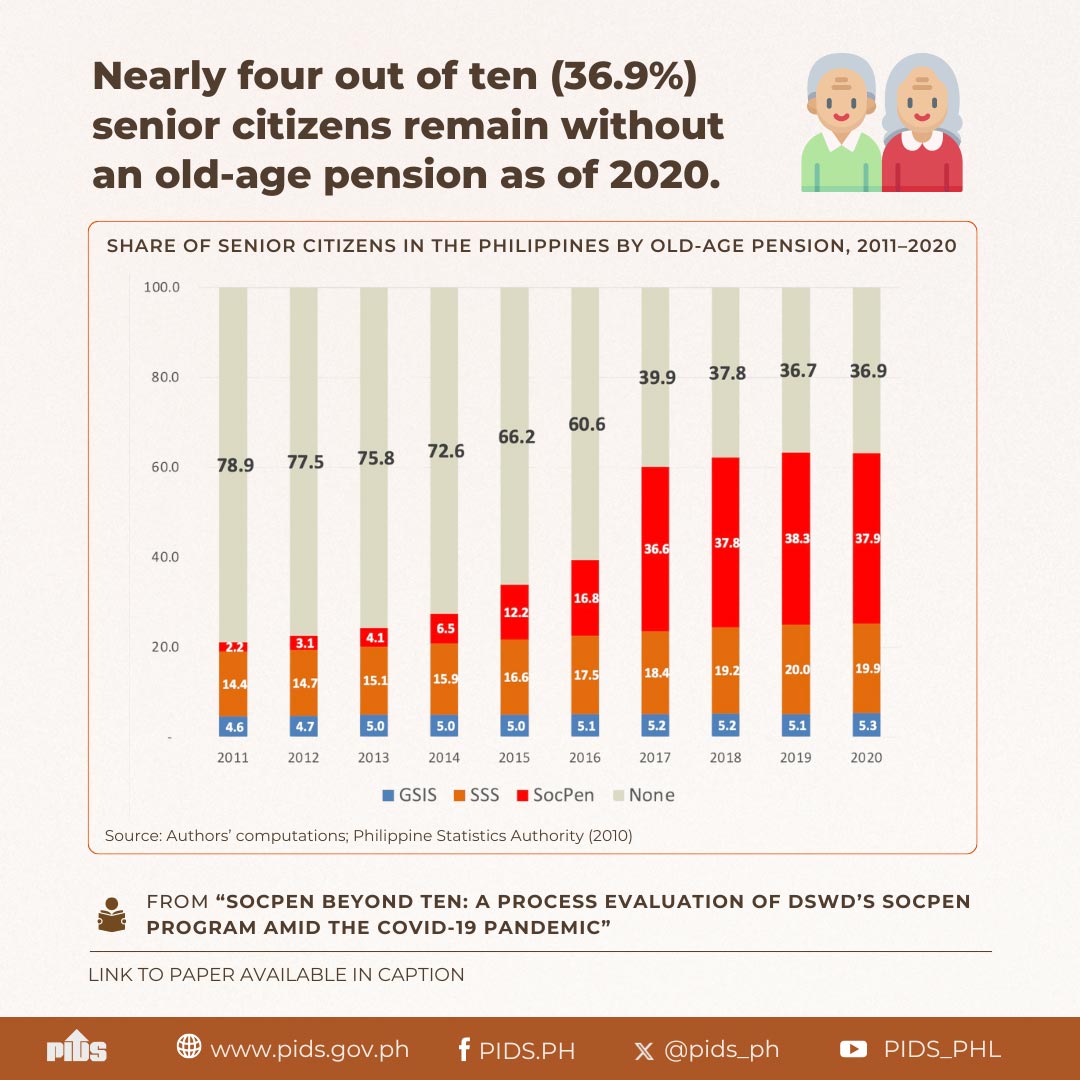The Department of Social Welfare and Development’s (DSWD) social pension (SocPen) program has covered an additional 37.9 percent of the country’s elderly population with non-contributory pension, but some issues in its implementation may need to be addressed, according to a report published by a state think tank.
According to a policy note titled “How can DSWD’s Social Pension Program for Indigent Senior Citizens be improved” published by the Philippine Institute for Development Studies, the said coverage of the SocPen program as of 2020 is on top of the 25.2 percent senior citizens covered by the contributory schemes of the Social Security System and the Government Service Insurance System.
The PIDS publication said implementers unanimously expressed concern about the persistent staffing problem, while a few elderly interviewed for the study saying they were not aware of SocPen and had only recently learned about it through word-of-mouth from SocPen beneficiaries or through barangay officials.
“Program implementers recognize that inclusion, exclusion and targeting errors persist to this day, despite the nationwide revalidation that started in 2018. They are aware that the inclusion of senior citizens who receive pensions (when they should not) inflates the program budget,” the report said.
“Senior citizens interviewed claimed the application process is confusing and accounted for ‘leakage’. One senior citizen claimed that some beneficiaries do not meet the criteria of indigency as prescribed by law, but become recipients either because these pensioners exert clout in the community or are relatives of those who work in the barangay,” it added.
Among the report’s recommendations include the adoption of a hybrid mode of payment for pension payouts by using e-payments and e-wallets for those elderly with access to technology and who live near city centers; standardizing the application process, including providing feedback to applicants; deploying dedicated staff to SocPen; and updating the SocPen Operations Manual annually and disseminate it far and wide.
The policy note also recommended to reexamine the operational definition of indigency, which has been delinked from poverty thresholds.
“As pointed out in Albert et al., the definition can adopt a less stringent threshold, such as using twice the poverty threshold, to determine indigents on account of senior citizens’ vulnerability. However, differentiated cash assistance must be provided based on where the elderly are in the income distribution,” the report said.
The policy note also recommended to “strengthen evaluation and monitoring mechanisms to reduce the possibility of the system being gamed and politicized.”












